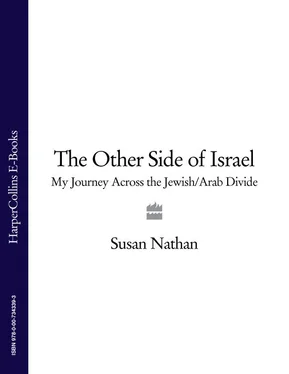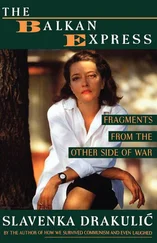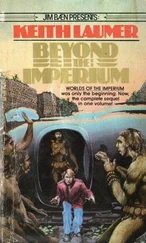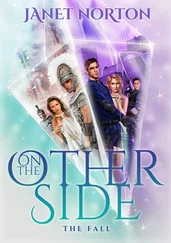How wrong he is was proved one evening while I was still smarting from the stone-throwing incident. I was sitting in my home with a group of twelve Arab friends watching a video of Mohammed Bakri’s controversial documentary film Jenin Jenin , originally banned in Israel and a powerful record of the traumatic effects on Jenin’s inhabitants of the violent invasion by Israel of the West Bank city in the spring of 2002. It was a disturbing moment at many levels. Sitting there as the only Jew, I was aware that I had to choose where I stood in this battle between two peoples, and that I had to be committed to the cause of justice and humanity. I watched the film through my Arab friends’ eyes, learning exactly how they see us Jews as occupiers and oppressors. It made me question very deeply how I had been able to identify with a country that could send its child soldiers to behave in this fashion.
The film prompted in me a recollection of a conversation I had had on one of my increasingly rare and strained visits to my religious cousins, Jeffrey and Doreen, in Ashdod shortly after Operation Defensive Shield. Their granddaughter’s husband, a medic in the reserves, had been sent to the Jenin area, and Doreen was apoplectic at the media suggestions that there had been a massacre there. ‘Good Jewish boys who serve in the Israel Defence Forces like our Ofer don’t harm people,’ she asserted confidently. And then, as if providing the proof, she told me that Ofer had even been asked by his commanders to give medical assistance to a Palestinian woman who was having a heart attack during the invasion. This level of naïety and self-satisfaction I found profoundly unsettling. I told her: ‘The reality is that no one can know what their children get up to in a war. Soldiers carry secrets they will never divulge to their families.’
Although I am sure there are soldiers who attempt to hold onto their humanist values while in uniform, I am also convinced that the inherent immorality of enforcing an occupation makes good intentions almost futile. Worse than this, there is plenty of evidence that many soldiers lose their judgement entirely under the pressure of the barbaric tasks they are ordered to carry out. One need only consider the reports in the Hebrew media of the high suicide rates in the army, of the number of soldiers who are receiving psychological help and counselling, or who are discharged from duty, to know the truth of this. But on this matter Israelis are in deep denial.
Later, after visiting Jenin, I was convinced that something terrible had happened there, and that atrocities had been carried out by the Israeli army. When I watched the film, before I had been there, I was unprepared for the horrifying details of what had taken place, and of the terrible destruction wrought on the inhabitants’ lives as well as on the centre of Jenin camp. Watching the survivors, broken-hearted amid the rubble of their homes, hopeless and with an understanding that their voice would never be properly heard, I felt their rage. It dismayed me to realise that I too was seeing the Israeli army, full of those ‘good Jewish boys’, as a terrorist army, and that for the first time I was beginning to understand the emotions that can drive a suicide bomber to action. I could see how unfair it sounds to a Palestinian to hear a suicide bomber being labelled a terrorist when we refuse to do the same if an Israeli soldier bulldozes a house with a family inside.
As I attempted to cope with these images on the screen, I was also confronted by the unexpected reactions of my Arab friends watching alongside me. Afterwards we talked about the film, and though I felt near to tears, as they spoke about the horrifying events they were smiling. I vividly remember Heba from my family recalling one particularly unpleasant scene, when an old man tells of being shot in the leg at close range by a soldier, and all the while she maintained a fixed smile. I thought: ‘Is this a mask, is this the only way she can contain her emotions, suppress the pain? And if it is, is the mask reserved for me, the Jew here, or is it one they maintain with each other too?’ The answer possibly came when the group got up to leave. Zeinab turned to me at the door and said, with the same fixed smile and glittering angry eyes I had seen before: ‘Sweet dreams.’ It was as if I had been hit in the stomach. I desperately wanted to say, ‘But that’s not me, don’t hold me responsible, I’m with you.’ But anything I said would have been inadequate. Maybe that night was the ultimate test for me in Zeinab’s eyes. Maybe she thought I would go running home to Tel Aviv the next day. But I didn’t; I stayed. And afterwards my friendship with Zeinab deepened and strengthened.
Listening to and coming to understand the Palestinian narrative was an important part of unlearning my lifelong Zionist training, which had dismissed the Palestinians’ history and culture as irrelevant or non-existent. One of the most poignant episodes occurred when I was reading the autobiography of the Jerusalem doctor Mufid Abdul Hadi, which had been given to me by his nephew, Dr Mahdi Abdul Hadi, the director of the Palestinian Academic Society for the Study of International Affairs (Passia), based in Jerusalem. There is a moving passage concerning his escape, along with many other refugees, from Palestine in 1948, after the Israeli state was declared. It concludes with a scene on a boat, al-Malik Fuad , which heads for Sweden packed with Palestinian refugees being taken away, most of them forever, from their homeland and their families. ‘When al-Malik Fuad lifted its anchor and began its westward-bound journey, it met another ship going in the opposite direction. Its gunwale was occupied by hundreds of singing and rejoicing people, who were greeting “The Promised Land” for the first time. The happy people greeted our ship by waving the Jewish state’s flag.’
Here was the flipside of the Exodus story that inspired my love affair with Israel. In all my time as a teenager learning my people’s history I had never been encouraged to think in those terms, that our people’s rejoicing came at the cost of another’s bereavement. The Zionist story I had learned was that this country was ‘a land without people’. But here was one of those supposedly non-existent Palestinians telling me his story of loss and betrayal. I thought how much we could change history if we could raise Jewish children with that simple understanding.
The obstacles to doing it are huge. The apparent inability of Jews in Israel and the Diaspora to address the true roots of the Middle East conflict and accept their role in the Palestinians’ suffering is given an alibi by their fears, which are in turn stoked by stories in the media of the ever-present threat of anti-Semitism, a Jew-hatred in both Europe and the Arab world that we are warned has troubling echoes of the period before the Second World War. A disproportionate part of the media coverage of anti-Semitism concentrates on tarring critics of Israel with this unpleasant label. Anyone who has disturbing things to say about what Israel is doing to the Palestinians is, on this interpretation, an anti-Semite. I have little doubt that the motivation of Israel’s defenders in many cases is to silence the critics, whether their criticisms are justified or not.
My own critique of Israel, that it is a state that promotes a profoundly racist view of Arabs and enforces a system of land apartheid between the two populations, risks being treated in the same manner. So how does one reach other Jews and avoid this charge of anti-Semitism?
Given the sensitivities of Jews after their history of persecution, I think it helps if we distinguish between making a comparison and drawing a parallel. What do I mean? A comparison is essentially a tool for making quantitative judgements: my suffering is greater or lesser than yours, or the same. Jews have a tendency to demand exclusive rights to certain comparisons, such as that nothing can be worse than the Holocaust, because it involved the attempt to kill a whole people on an unprecedented industrial scale. Anyone who challenges that exclusive right, for example by suggesting that Israel is trying to ethnically cleanse the Palestinians from their homeland, is therefore dismissed as an anti-Semite. The debate immediately gets sidetracked into the question of whether the argument is anti-Semitic rather than whether it is justified.
Читать дальше












